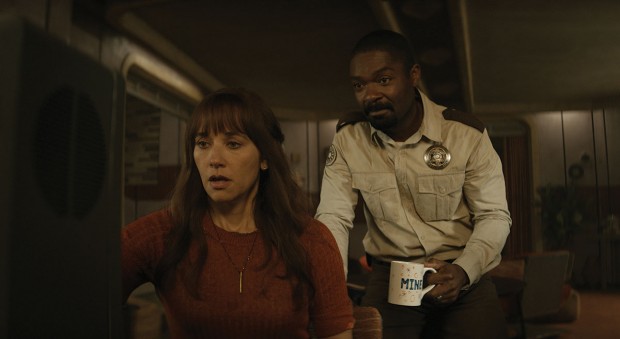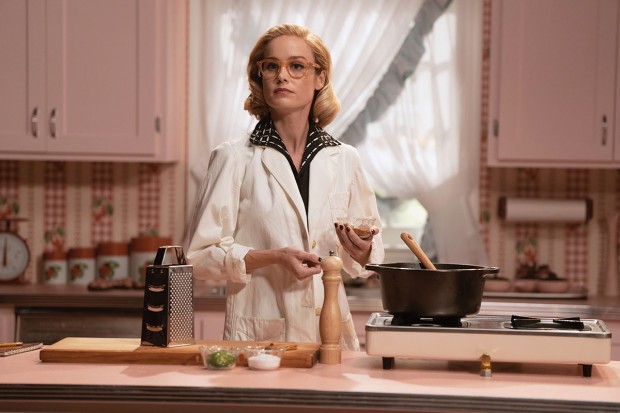From Book to Screen
Adaptations that work and why

Historically, most die-hard readers have been firmly in the camp of “the book will always be better than the TV show or movie.” With the advent of streaming platforms and the need for additional content, production companies are choosing to adapt more books to the screen than in the past. These days, with more competition to own a piece of the market, the shows are often much stronger than they used to be. Allowing books to be translated to the screen through limited series – which usually run 6-10 episodes – versus movies, which often top out at 2 to 2.5 hours, has given companies more leeway to develop stronger versions of the books as well.
Bonnie Garmus’ massive bestseller Lessons in Chemistry is a good example of an adaptation that landed well with many readers. The show ran on Apple TV+ over eight episodes last fall, and Brie Larson starred as the main character, Elizabeth Zott. The story is set in the 1950s, and obvious care was taken to make sure the clothing, music, and locales were accurate for that time period. Bringing Elizabeth’s cooking show to life was another aspect of the TV version that stood out to me; I am such a visual person and watching the cooking show versus reading about it was a true standout for me.
Daisy Jones and the Six by Taylor Jenkins Reid is another bestselling book that was adapted for the screen on Amazon Prime Video last year, running over 10 episodes. Since the story is about a fictional rock band, the show creators had to write songs for the show as well as bring the band and its shenanigans to life. The book is told through a series of interviews, and the show’s creators made sure they kept that aspect of the book, which translated well to the screen. In addition, they also made sure that the clothing and the ’70s atmosphere were accurately depicted. The show has received numerous Golden Globe and Emmy nominations.

IN THE SILOS Apple TV+’s Silo is based on the Wool trilogy by Hugh Howey. (Photo: Photo courtesy of Apple TV+)
While I am usually a fan of reading the book before I see a screen adaptation, last year, I watched Silo on Apple TV+ before I realized it was based on Hugh Howey’s Wool trilogy. This trilogy is set in the future in underground silos after the world above has been contaminated and become uninhabitable. It follows several main characters as they begin to understand that everything is not as it seems. After finishing the show and loving it, I read Wool and really enjoyed comparing the two. Silo covers just a small portion of the story in Wool, which runs over 500 pages, and I found it fascinating to see how the show’s creators depicted life in the silos. After watching the show and reading the first book, I decided that sometimes it can work to watch a show first, but I feel that the Silo/Wool situation is most likely unique. Anytime I hear of an adaptation coming that I want to see, I track down the book to read it before I watch the show or movie.
Sometimes the initial screen adaptations do not land well, at least for those that are fans of the original book(s). Two examples are the Jack Reacher movies (2012 and 2016) starring Tom Cruise, based on the Jack Reacher series by Lee Child and the Percy Jackson movies based on the Percy Jackson series by Rick Riordan. Regarding the Jack Reacher movies, the main quibble readers expressed was the casting of Tom Cruise as Reacher, a man who is described as “hulking” and is 6’5” tall. Cruise clearly does not fit the bill, and readers, myself included, felt that miscasting Tom Cruise as Reacher made it difficult to take the movies seriously as valid interpretations of the books. The Percy Jackson movies chose to age up the main characters by 6 or 7 years as well as poorly depicting the setting and storylines.
Recently, both book series have been adapted again in the limited-series format to much greater acclaim. Season 1 of Reacher on Amazon Prime Video was a huge hit for the platform last year, and Season 2 recently released. Alan Ritchson, a giant of a man, is cast as Jack Reacher this time, and readers have loved his depiction of the title character as well as the series itself. Percy Jackson recently came out as a limited series on Disney+ to positive reviews and a much closer following of the books.
If you are looking for more screen adaptations, other books that have had successful limited series or movies in recent times are Killers of the Flower Moon by David Grann (Apple TV+), the Bridgerton book series by Julia Quinn (Netflix), The Night Agent by Matthew Quirk (Netflix), The Other Black Girl by Zakiya Dalila Harris (Hulu), and All the Light We Cannot See by Anthony Doerr.
More screen adaptations are coming in 2024 including one of my all-time favorite books, A Gentleman in Moscow by Amor Towles (Showtime), as well as A Good Girl’s Guide to Murder by Holly Jackson (BBC Three), and The Never Game by Jeffery Deaver (which will be entitled Tracker) (CBS).
One of the most talked about upcoming adaptations is Argylle by Elly Conway, which published on Jan. 9. The author’s bio is vague including language that “she lives somewhere in the United States” and there has been a lot of speculation that the author could be Taylor Swift, something even the publisher has played into. Adding to the idea that it could be Swift is the quick adaptation to a movie, which is out this month, and that the adaptation has a star-studded cast that includes Samuel L. Jackson, Henry Cavill, Bryce Dallas Howard, Sam Rockwell, Bryan Cranston, Katherine O’Hara, Dua Lipa, Ariana DeBose, and John Cena. While it seems odd that this spy thriller would be written by Taylor Swift, it has done wonders for the book’s popularity.
Now, back to the question: Is the book always better? It seems it depends on the book, the adaptation, and the reader. We’d love to hear what you think.
Want more buzz like this? Sign up for our Morning Buzz emails.
To leave a comment, please log in or create an account with The Buzz Magazines, Disqus, Facebook, or Twitter. Or you may post as a guest.



